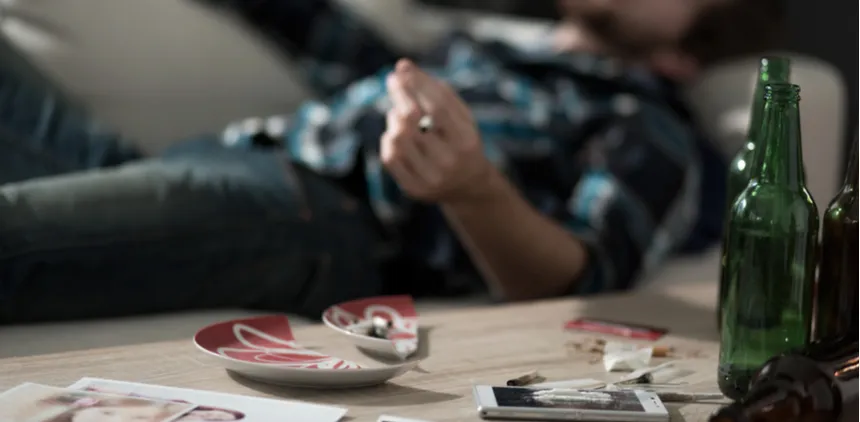Residential treatment, which is also known as inpatient treatment, is the most intensive form of professional addiction treatment available. People receiving residential treatment live at the facility for the duration of their care. We’ve compiled a shortlist of 5 signs you need residential treatment in order to help determine whether this level of care may be appropriate for you or your loved one.
Individuals in residential treatment participate in therapies, activities, and exercises that help treat addiction and promote recovery. Individuals typically remain in residential treatment for 30, 60, or 90 days at a time. Because of how rigorous residential treatment is clients do not work or go to school while being treated. Instead, all of their focus is on their recovery.
Top 5 Signs You Need Residential Treatment
Residential treatment is not the best choice for everyone who is struggling with a substance use disorder. It is, however, an excellent choice if you are in need of this level of care. If you are experiencing any of the following, reach out to a residential treatment program.
1) You have attended another treatment program but continue to struggle with your sobriety.
You may have taken part in a partial hospitalization program, an intensive outpatient program, or traditional outpatient treatment already. Maybe you have even experienced success in your sobriety after completing one of these programs. You might have even gone through more than one program more than one time. But, if you continue to relapse, residential treatment is a smart next step. This is because residential treatment is the highest level of addiction treatment available.
And while other programming options are certainly effective, it can take participating in residential treatment to get sober and stay that way. This may be the single strongest factor in the 5 signs you need residential treatment, even if you’ve already attended an inpatient program itself in the past without results. Sometimes it takes multiple attempts to achieve successful, lasting sobriety – but the effort is worth it!
2) You have a severe substance use disorder.
The severity of your substance use disorder may be subjective to those around you, but it’s not subjective to professionals. People who meet 6 to 11 diagnostic criteria may have a substance use disorder. The specific criteria can be found in the Diagnostic and Statistical Manual of Mental Disorders (DSM-V). If you have a severe substance use disorder, residential treatment is the likely treatment option. Residential treatment offers thorough, specialized care that is not available in other levels of care.
3) You are experiencing a substance use disorder and a mental illness.
It is extremely common for people with a substance use disorder to also have a mental illness. A person who experiences both conditions at the same time has as a dual diagnosis. Nearly 50 percent of people with an addiction have a mental illness. If this is the case for you, residential treatment can be the best option for care.
In this setting, you can get physical, psychological, and emotional care simultaneously. Providers will work in concert with one another to continually modify your treatment plan to meet your needs. Integrated intervention refers to treatment for both a substance use disorder and a mental illness simultaneously. Not everyone with a dual diagnosis requires residential treatment, however, it is often recommended due to how effective it is.
4) You are living in an environment that is not conducive to your recovery.
Your living environment shapes your everyday life in more ways than you likely realize. Living somewhere that is not conducive to your wellbeing is deadly if you are addicted to drugs or alcohol. Negative living environments that are common for those addicted to drugs or alcohol include places where you:
- Have no physical shelter (such as on the streets)
- Are surrounded by people who enable your use
- Feel tempted to use again and can access drugs or alcohol
- Are constantly at odds with the people you live with
- Are person is unable to rest
It is nearly impossible to maintain sobriety when living in an environment with one or more of these issues. Residential treatment offers you a safe, clean, and nurturing environment to recover in. This can help you lay a strong foundation for your recovery so you can continue to succeed in staying sober.
5) You are physically dependent on drugs or alcohol and need professional detox services.
If you are physically dependent on a substance, it means that you cannot stop using it without experiencing withdrawal symptoms. Dependence is extremely challenging to overcome independently. It can keep people using drugs and alcohol long after they even want to. If you are dependent on a substance, residential treatment is a great option for your care. Residential treatment programs offer detox services, which can help end your dependence.
Prescription medications are given to help ease symptoms as well as receive therapeutic guidance. If you are dependent on benzodiazepines or alcohol, detox is vital. After all, withdrawal symptoms that occur from these substances can be deadly. If you are in residential treatment during your withdrawal, your risk of dying from symptoms is extremely minimal.
What are the Benefits of Residential Treatment?
Residential treatment, if right for you and your needs, can be highly beneficial in your life. If you remain focused and dedicated to your treatment, you can gain the following benefits:
- Time and space to process your substance use disorder
- A safe, secure, and drug-free environment
- Support from addiction professionals during a time when you are likely feeling vulnerable and emotionally raw
- Support from others who are also in recovery from substance use disorders
- Information that helps you understand addiction as a disease
- Skills that can help you prevent relapse
Your treatment does not need to stop at a residential program. If necessary, you can continue your care by stepping down to other levels of treatment. For example, this can include going from residential treatment to an intensive outpatient program. Another great benefit of residential treatment is that staff members can help guide you in your next steps.
Taking the Time to Take Care of You
If your situation reflects some (or all) of the signs indicated above, then a wise step to take would be reaching out to our Admissions team at Circle of Hope. Whether or not you would be best suited to detox and residential treatment, or a different form of mental health or substance abuse counseling, our compassionate, dedicated staff can let you know the full array of options as well as the costs involved, usually within minutes.
The Circle of Hope Treatment Difference
If you are abusing drugs or alcohol, stop what you are doing and reach out to us now. It does not matter how casual or serious your addiction is. All substance use disorders require appropriate treatment. For you, that treatment may come in a residential setting.
From our luxury setting to our personal chef(s), and our industry-leading 3:1 to counselor-to-client ratio, Circle of Hope represents the pinnacle of addiction and dual diagnosis treatment for Los Angeles, Southern California, and beyond. Our compassionate, caring Admission team is ready to help you find the best means of getting help for you or your loved one and can let you know, often within minutes, the costs and options available for you to truly recover from even the most hopeless-seeming situations.
Do not waste any more time trapped in your addiction. Reach out to us right now to learn more about how we can help you at Circle of Hope, and the levels of care we have to ensure your treatment is the most effective and lasting it can be.



